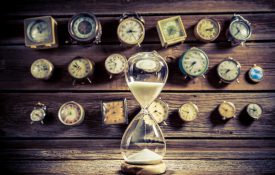-
How Do Creative Ideas Get Heard?
Imagine you are an employee at a widget-making factory. Sitting at your desk one day, you have an epiphany: You’ve thought of a new way to create widgets that should increase production by threefold. But
-

Financial Impulsivity Increases as the Workday Wears On
After completing several hours of challenging cognitive tasks, people’s financial decision-making style shifted to favor splurging over saving.
-

$384,961.42 for a House? When Precise Bids Work and When They Backfire
Making a very precise offer for a car or a house may hurt your chances of success if you’re negotiating with someone who has expertise in that area, a series of studies shows.
-
Experience Buying and Selling Reduces Financially Costly Biases
When it comes to decisions about buying and selling, businesses are supposed to use evidence and observations about the market for goods to make profitable decisions. In classical economics, it’s assumed that people make financial
-

Here, There, Everywhere
Psychological scientists have built thriving research careers outside the traditional boundaries of university psychology and behavioral science departments, including dentistry, optometry, engineering, music, fashion, and even physics.
-
New Research From Psychological Science
Read about the latest research published in Psychological Science: A Safe Haven: Investigating Social-Support Figures as Prepared Safety Stimuli Erica A. Hornstein, Michael S. Fanselow, and Naomi I. Eisenberger Research has shown that fear learning occurs

